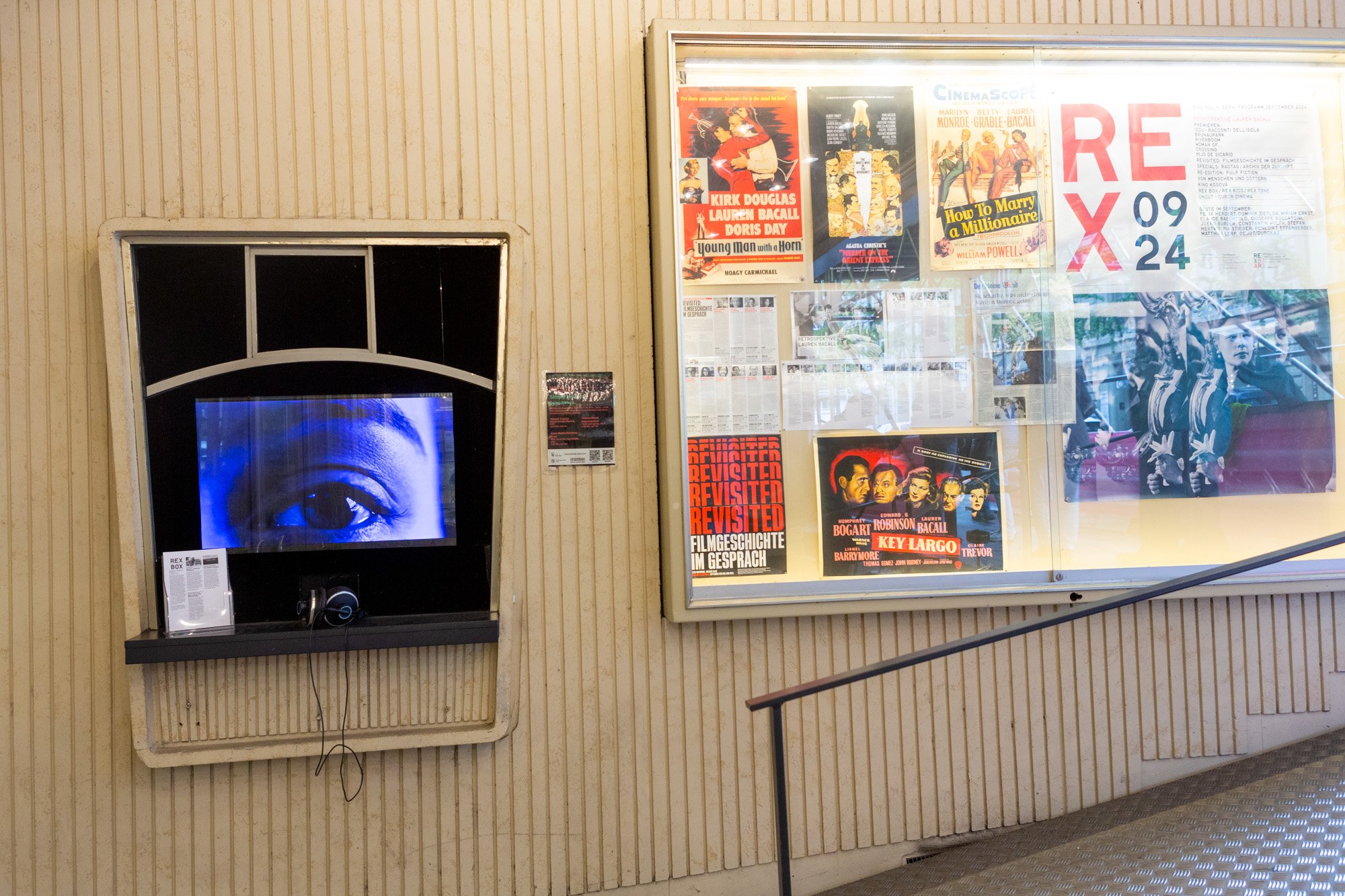


Simply Nature x REX Box x HKB Mediothek
29.08.– 3.10.2024
Talk in Saal REX 2: Thursday, 3rd October, 18:30 – 19:30
Andrea Domesle (Director Videocity) in conversation with artist Anna Mutschlechner-Dean (Vienna) and Rebekka Friedli (Bern). Two different video programmes and perspectives on the annual theme ‘Simply Nature’ will be discussed – ‘Being Nature’ and ‘Missing Fire’.
REX Box, Kino REX Bern, Schwanengasse 9, 3011 Bern, daily, 13:30 to 24:00
Schaufenster der Mediothek HKB, Fellerstrasse 11, 3027 Bern, Mon-Fri 9:00-17:00
Being Nature
Artists: Janani Cooray, Anna Mutschlechner-Dean, Transcultural Emancipation
Curator: Ursula Maria Probst, Artistic Director for Contemporary Art, FLUCC. Centre for Arts & Communities, Kultur-Ankerzentrum Wien.
Without new narratives and corresponding action, change is hardly possible. ‘It is our task to stir up unrest into effective responses to destructive events, but also to calm the troubled waters, to rebuild calm places’ is an appeal by Donna Haraway, who establishes original and inventive lines of connection to the complexity of our present in order to develop new practices of learning.
The artistic positions presented as part of ‘Being Nature’ share an engagement with ecological issues, climate care and the use of resources – they show interactions at the intersection of art and science. Complex interdependencies of mutual care and critique of common logics of utilisation interconnect with climate-ecological alternatives and the creation of new spaces of experience.
Currently we are not only confronted with massive damage to the ecosystem and biodiversity as a result of global warming, but also as a result of ecocide: Russian troops are destroying nature in Ukraine and have already caused environmental damage totalling more than 45 billion euros. ‘Being Nature’ shows the relationship between complex living environments, nature, space, action, growth and the ecological responsibility of humans. How can we ensure that our economy works for the benefit of humans, animals, plants and biodiversity and not the other way round? Do we need ‘schools of the future’ and ‘co-operatives for the common good’?

